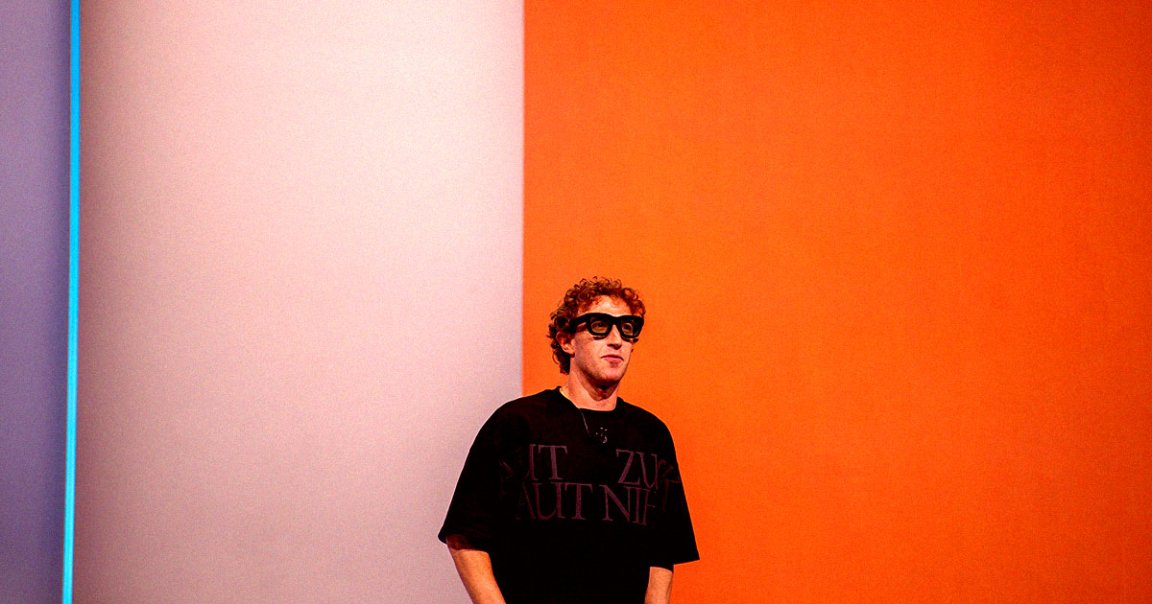
Meta CEO Mark Zuckerberg has been stealing headlines by offering AI talent mind-boggling financial offers, reportedly reaching $1 billion, to keep his social media company’s floundering ambitions of winning the AI race alive.
As Wired reported last month, Meta approached more than a dozen people at Thinking Machines Lab, an AI startup founded by former OpenAI executive Mira Murati — none of whom took the offer.
That failure illustrates the grim truth at the heart of the outsize financial overtures, as New York Magazine‘s John Herrman points out: though Zuckerberg would like the world to see his poaching efforts as a sign of his belief in the power of AI, the reality feels more like a situation in which he’s so widely loathed in the tech industry that he needs to bribe AI luminaries with heart-stopping paydays just to put up with him.
While we can only speculate as to why AI talent is turning down hundreds of millions of dollars, Zuckerberg was broadly criticized over his vision for Meta’s AI team last month, vaguely claiming that “automating all valuable work” will somehow put “power in people’s hands to direct it towards what they value in their own lives” — instead of concentrating power for those who control the AI.
“I think the most interesting thing about Zuck’s vision here is how… boring it is,” Transformer journalist Shakeel Hashim tweeted at the time. “Just entirely devoid of ambition and imagination.”
Potential hires might also be put off by Zuckerberg’s unrealistic goals of creating a utopian society that can conveniently only be observed through a pair of smart glasses that he’ll sell you.
“That Mark Zuckerberg has a weaker future-of-AI pitch than the MechaHitler guy goes a long way toward explaining his company’s outlier offers,” Herrman wrote, referring to Elon Musk’s AI chatbot experiencing a Nazi meltdown last month.
Meta’s infamously tough work culture could have something to do with it. The company’s former AI researcher Tijmen Blankevoort warned in a blog post last week that workers fear getting fired “on a daily basis” and that management there fails to promote a “sense of camaraderie among employees, leading to a lack of sense of belonging.”
Blankevoort also accused Meta of having a “wavering vision that was tough for team members to enthusiastically rally behind.”
Meanwhile, even AI competitor Google hasn’t been all too impressed with Meta’s existing talent. Zuckerberg’s firm hasn’t been nearly as much of a target when it comes to poaching from competitors.
“They already had the best people and lost them to OpenAI,” a former Meta AI employee told Forbes. “This is Mark trying to undo the loss of talent.”
“We might be interested in hiring some of the new people Mark is hiring now,” a senior AI executive at a frontier AI company added. “But it’s been a while since we were particularly interested in the people who were already there.”
Compounding Meta’s hiring woes was the company’s Llama 4 AI model rollout. The April announcement became shrouded in controversy after experts accused the company of fudging the numbers and posting misleading benchmark results that pertained to a different AI model.
As the AI race continues to heat up, Zuckerberg and Meta clearly have their work cut out to stay relevant. The company’s efforts bear almost no brand recognition, while OpenAI’s ChatGPT has become practically synonymous with AI chatbots.
In short, Zuckerberg’s lackluster vision and Meta’s uninspiring work culture could be keeping key talent away. Even billion-dollar bids are seemingly failing to change that — likely infuriating Zuckerberg, who has always desperately wanted to be cool.
More on Zuckerberg: Zuckerberg’s Huge AI Push Is Already Crumbling Into Chaos